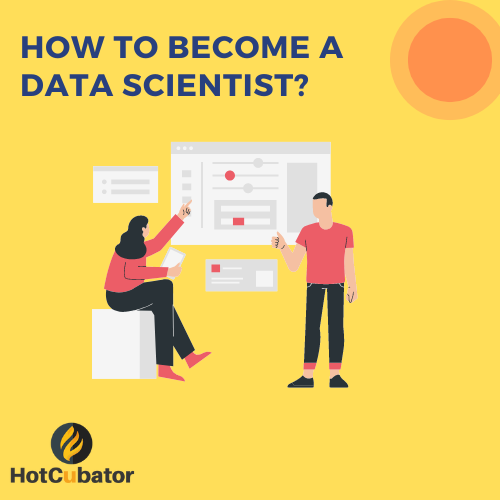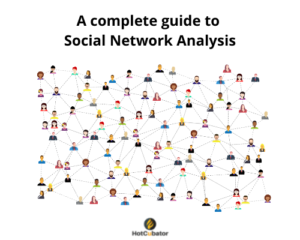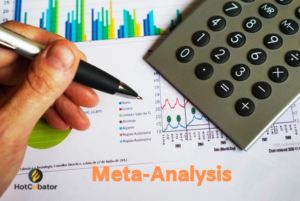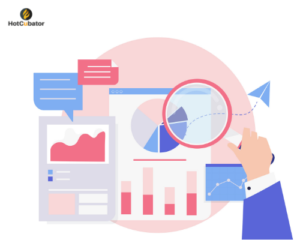
All you need to know to become a data scientist
The word ‘data’ is not only a buzz word, but one that is dominating the whole universe these days. Data is ubiquitous and we are contributing to the world of data with every single human endeavor – be it a touch on our phones, browsing social media, online shopping or even gazing at our TV screen. Data-driven insights are critical in today’s business world, as they provide valuable information that organizations can use to make informed decisions. By analyzing data, businesses can identify patterns and trends that may not be visible through other means, and use these insights to optimize operations, improve customer experiences, and gain a competitive advantage. Data-driven insights can also help businesses to identify potential risks and challenges, allowing them to make proactive decisions and avoid potential pitfalls. With the explosion of data in recent years, businesses that are able to harness the power of data-driven insights are better positioned to succeed and thrive in today’s digital landscape. With the growing importance of data-driven insight, data science has emerged as one of the most demanding fields these days.
According to the U.S. Bureau of Labor Statistics (BLS), employment of computer and information research scientists, which includes data scientists, is projected to grow 19 percent from 2020 to 2030, much faster than the average for all occupations. Information from Glassdoor suggests that the average base salary for a data scientist in the United States is $113,309 per year, with some professionals earning well over $150,000 per year. It is also reported that there will be a shortage of up to 250,000 data scientists in the US alone by 2024.
So what is data science?
Data science is an interdisciplinary field that involves the use of various statistical, computational, and machine learning techniques to extract insights and knowledge from data. It involves the collection, processing, and analysis of large and complex data sets to identify patterns and trends, and to extract valuable insights that can be used to inform decision-making processes in various industries. Data science encompasses a wide range of techniques and tools, including data visualization, statistical analysis, machine learning, and artificial intelligence. Data scientists use these tools to extract meaningful information from data sets and to develop predictive models that can be used to solve complex problems and make informed decisions. The field of data science is constantly evolving, driven by advancements in technology, algorithms, and data management techniques, and is used in industries ranging from healthcare and finance to marketing and retail.
Pathway to becoming a data scientist
To become a data scientist, you typically need to have a strong foundation in mathematics, statistics, and computer science. Here are the steps you can take to become a data scientist:
- Earn a bachelor’s degree in a relevant field: A degree in computer science, statistics, mathematics, physics, or engineering can provide a solid foundation for a career in data science.
- Gain programming skills: Knowledge of programming languages such as Python, R, SQL, and Java is crucial for data science. You should also be familiar with data manipulation and visualization tools such as Pandas, Matplotlib, and Tableau.
- Develop statistical skills: A strong understanding of statistical concepts and methods is essential for data science. You should be familiar with statistical inference, hypothesis testing, regression analysis, and Bayesian statistics.
- Learn machine learning algorithms: Machine learning algorithms are used extensively in data science. You should have a good understanding of different machine learning algorithms such as decision trees, random forests, neural networks, and support vector machines.
- Gain experience with real-world projects: Participating in data science projects or internships can provide you with practical experience and help you build a portfolio to showcase your skills.
- Stay updated with industry trends: The field of data science is constantly evolving, so it’s important to stay up-to-date with new tools, technologies, and techniques.
Key skills to develop as a data scientist:
To become a successful data scientist, you need a combination of technical and non-technical skills. Here are some of the key skills needed to become a data scientist:
- Strong mathematical and statistical skills: Data science involves a lot of statistical analysis, modeling, and data interpretation. You should have a strong foundation in statistics and mathematics to understand the data and create predictive models.
- Programming skills: Data scientists use programming languages such as Python, R, and SQL to manipulate, clean, and analyze data. You should be familiar with programming concepts such as loops, functions, and data structures.
- Data visualization skills: Communicating insights from data is a critical part of a data scientist’s job. You should be able to create clear and visually appealing graphs and charts to represent complex data.
- Business acumen: Data science is ultimately about solving business problems. You should understand the business context and be able to translate technical insights into actionable recommendations.
- Curiosity and creativity: A curious and creative mindset can help you identify new opportunities and solutions for data-related problems.
- Communication skills: You need to be able to communicate effectively with different stakeholders, including non-technical audiences. You should be able to explain complex concepts in simple terms and present data insights in a clear and compelling way.
- Problem-solving skills: Data science involves identifying problems, defining the scope of the problem, developing a strategy, and implementing a solution. You should be able to break down complex problems into smaller parts and apply creative problem-solving techniques to find a solution.
Tools/programs to equip with to become a data scientist
Along with strong analytical skills as a data scientists, you will have to use a variety of tools and technologies to analyze, manipulate, and visualize data. Here are some of the key tools that data scientists regularly play with for performing a variety of functions:
- Programming languages: Data scientists use programming languages such as Python, R, and SQL to manipulate and analyze data, build models, and develop algorithms.
- Data visualization tools: Data visualization tools such as Tableau, Power BI, and D3.js are used to create interactive charts, graphs, and dashboards to visualize data and communicate insights.
- Statistical software: Statistical software such as SAS, SPSS, and Stata are used to perform complex statistical analysis and modeling.
- Big data tools: Big data tools such as Hadoop, Spark, and Hive are used to process and analyze large data sets.
- Machine learning frameworks: Machine learning frameworks such as TensorFlow, PyTorch, and Scikit-learn are used to build and train predictive models.
- Cloud computing platforms: Cloud computing platforms such as Amazon Web Services (AWS), Google Cloud Platform (GCP), and Microsoft Azure are used to store and process large data sets and run data analysis and modeling tasks at scale.
- Data management tools: Data management tools such as Apache Kafka, Apache NiFi, and Apache Airflow are used to collect, store, and process data from different sources.
If you feel intimidated or not sure if you can go to a university to learn the skills to become a data scientist, then here are some platforms (some offer free courses) through which you can equip yourself with the required skills to become a data scientist:
Platforms from where to learn data science skills
Here are some free websites to learn data science skills:
- Coursera: Coursera offers a wide range of courses on data science topics from top universities around the world. Many of these courses are free, although you may need to pay to receive a certificate.
- edX: edX is a platform that offers courses on a variety of subjects, including data science. Many of the courses are free, but you can also pay for a certificate.
- DataCamp: DataCamp offers interactive courses in R, Python, and SQL. While not all courses are free, there are many free courses available.
- Kaggle: Kaggle is a platform for data science competitions, but it also offers a wealth of educational resources, including tutorials, datasets, and forums where you can ask questions and learn from others.
- Udacity: Udacity offers a variety of data science courses, including some that are free. The courses are taught by industry professionals and cover topics such as machine learning and data analysis.
- MIT OpenCourseWare: MIT OpenCourseWare offers free courses on a variety of subjects, including data science. The courses are taught by MIT professors and cover topics such as data analysis and machine learning.
- Harvard University’s Data Science Professional Certificate: This program is offered on edX and covers a wide range of topics in data science, including R programming, data visualization, and machine learning. Although it is not free, financial aid is available for those who qualify.
- Codecademy: Codecademy offers courses in Python, SQL, and other programming languages, which are relevant to data science.
- YouTube: YouTube is a great resource for learning data science skills. Many experts have created channels to share their knowledge, and there are many tutorials available for free.
And lastly keep in mind that it is never too late to learn anything in life. So dive in, learn and equip yourself with data skills.








